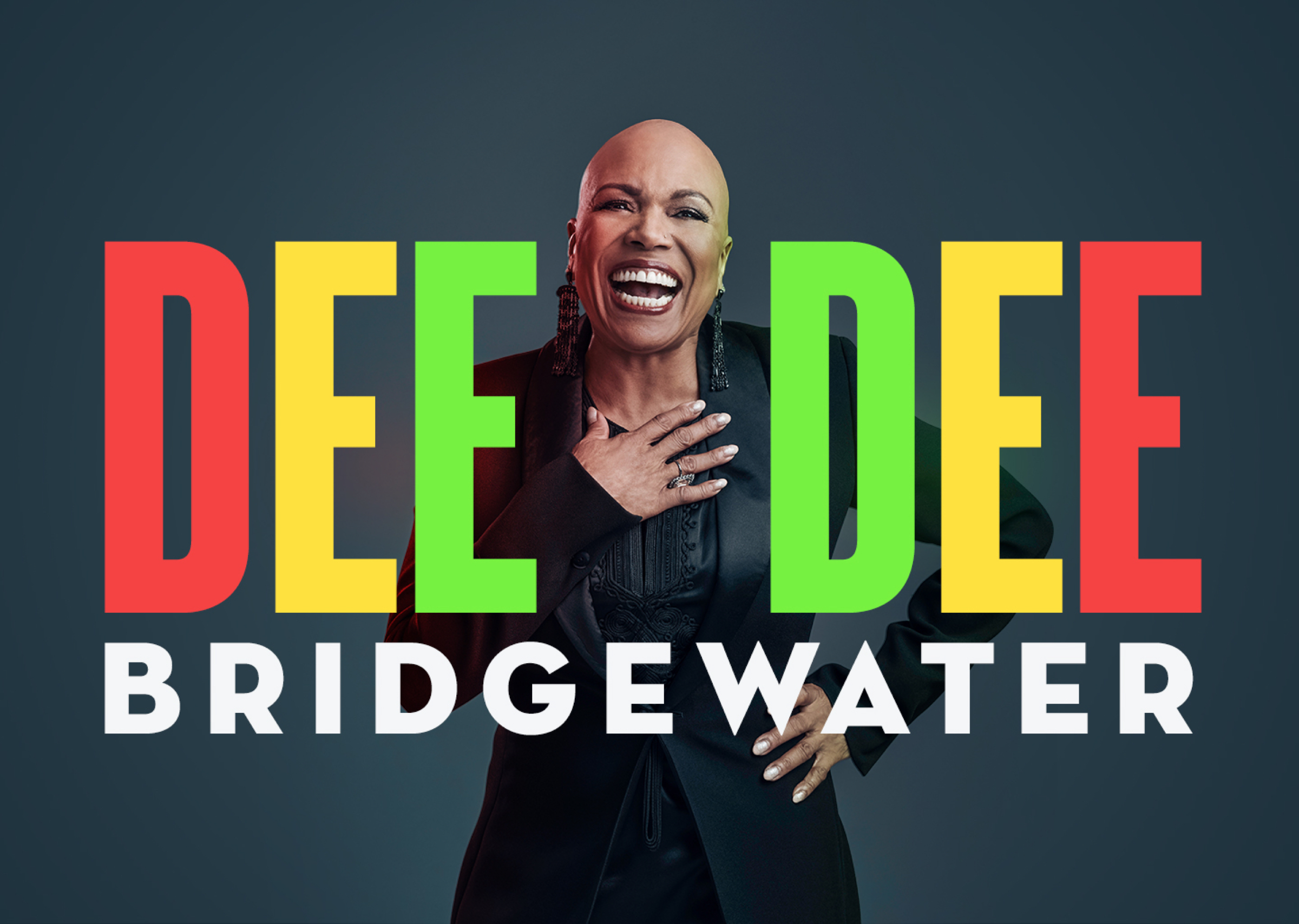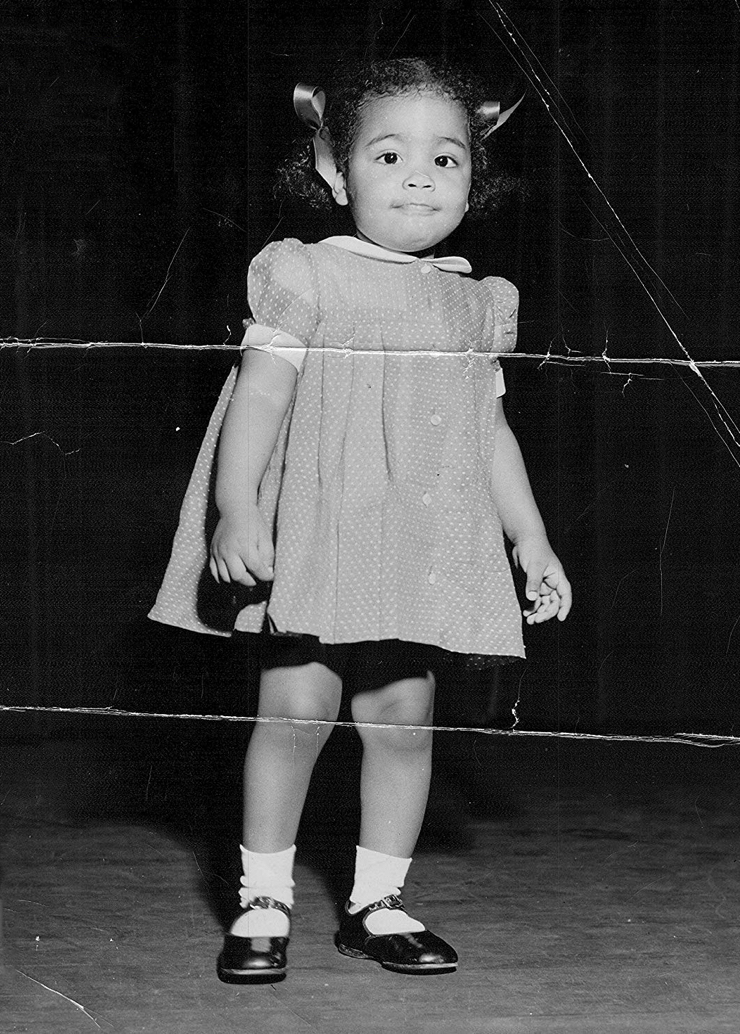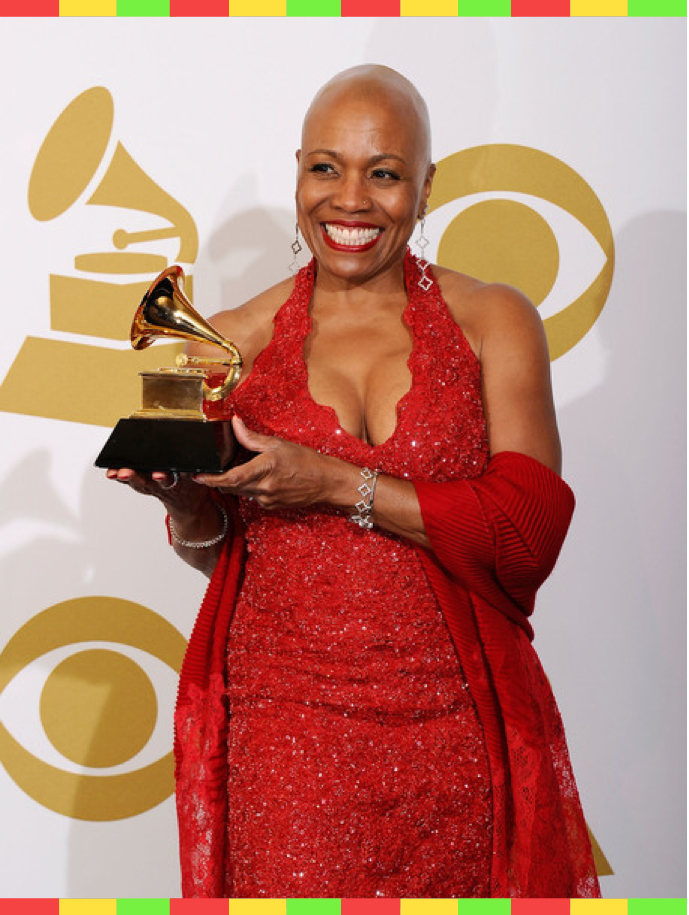
Whatever you choose to call her, one thing is clear: Dee Dee Bridgewater’s wealth of unique talents and the depths of her cultural knowledge are largely unparalleled in the history of modern music. As the winner of three Grammy Awards, a Tony Award, an AUDELCO Award, an NEA Jazz Masters Award, and several other distinct honors from around the globe, she is unmistakably one of America’s most celebrated living performers and one of the greatest vocalists in modern jazz history.
Born Denise Eileen Garrett in 1950, Dee Dee was brought up from birth on the music of her hometown. Her father, Matthew Garrett, was a respected jazz trumpeter and teacher at Memphis’ Manassas High School, where he taught future jazz legends and Memphis Music Hall of Fame Inductees Charles Lloyd and George Coleman. As a young child, her family relocated to Flint, Michigan, although the music of Memphis remained an ever-present influence. She recalls that she would regularly tune into Memphis radio station WDIA, where the blues, jazz, and R&B tunes from her hometown would fill her room. “I would sneak and listen. I couldn’t get it until 11 at night. I would put a pillow under my door and the radio under blankets and stuff, so my parents couldn’t hear it. I called it my secret garden,” she remembered.
By the age of sixteen, Bridgewater was already a staple in the Michigan club scene, displaying her preternaturally strong vocals. “I sang on weekends, with my father as my chaperone,” she recalled. “I was under age, so I had to sit in the kitchen between my sets.” She was a member of a female vocal trio called the Iridescents, and also sang alongside her father’s ensembles. Following graduation from high school, Bridgewater enrolled at the University of Illinois at Urbana-Champaign. As a vocalist in the university’s jazz band, she toured the Soviet Union in 1969, the first of what would become many trips abroad. She also began performing regularly with a jazz group called the Bridgewater Brothers, which convinced her to pursue music full time. “It became easier than going to school, so I dropped out,” she explained.

In the early 1970s, Bridgewater moved to New York City with her trumpeter husband Cecil Bridgewater, and launched her professional career alongside him as a member of the celebrated Thad Jones / Mel Lewis Orchestra. “Thad Jones was my world,” she remembered. “Everything that I know about music, I learned from Thad Jones and I learned from being in that band.” Having established herself as a rising star within the New York jazz scene, Bridgewater began performing with luminaries of the genre such as Dizzy Gillespie, Max Roach, Sonny Rollins, and others. With this momentum behind her, Bridgewater had a breakout year in 1974, releasing her celebrated debut solo album “Afro Blue,” and beginning a two-year stint as Glinda the Good Witch in the Broadway musical “The Wiz.” Her performance in the iconic role would go on to earn her a Tony Award the following year for “Best Featured Actress.”
Not long after moving to Los Angeles with her second husband, Bridgewater departed on an international tour with the musical “Sophisticated Ladies” in 1983. While on tour, she visited France and a life-long love affair with the country began, eventually leading her to move there permanently in 1986. “I was accepted in France for the talents I had. And, as a result of that, I never had any situations where I was rejected because I was black – or not black enough – which I did in the U.S.,” she recalled. During her time in Paris, Bridgewater starred in the musical “Lady Day” as legendary jazz singer Billie Holiday, earning rave reviews and a 1986 Laurence Olivier Award nomination for Best Actress (she would go on to win an AUDELCO Award in 2014 for her reprisal of the role). She also appeared in musicals such as “Black Ballad,” “Carmen,” and “Cabaret,” in which she became the first African American actress to star as Sally Bowles.
Before long, Bridgewater was a bona fide star in her adopted country. “I get called a lot to do TV, too,” she said at the time, “because I can sing in French. So I’ve developed a kind of special niche for myself – because I’m this interesting oddity, a French-speaking, African American singer – that allows me to sort of cross all boundaries and basically do what I want. It gives me a lot of magazine, press and media attention, and helps me reach out to an audience that is not necessarily a jazz audience.”

While her career in the theater may have become her primary priority during this period of her life, Bridgewater remained active in the music world, releasing six acclaimed solo albums between 1976 and 1989 that dabbled in pop, funk, and R&B. In the late 1980s and early 1990s, Bridgewater returned to her roots and released critically acclaimed albums such as “In Montreux” and “Keeping Tradition,” proving that her jazz chops had not diminished in the preceding years. She also began self-producing all of her own music for the first time.
In 1994, Bridgewater accomplished a lifelong goal when she finally collaborated with Horace Silver, a jazz pianist and composer she had long admired. The album “Love and Peace: A Tribute to Horace Silver” brought her a new level of fame outside of France and earned her a Grammy nomination for Best Jazz Vocal Performance. “Bridgewater uplifts Silver’s lyrics, proves to be in prime form, and swings up a storm,” wrote music critic Scott Yanow.

Over the next decade, Bridgewater continued to release notable albums that acknowledged her musical idols and influences, including 1997’s tribute to Ella Fitzgerald “Dear Ella” (which went on to win two Grammys the following year), her 2002 exploration of the songs of Kurt Weill, “This is New,” and 2005’s “J’ai Deux Amours,” a cover of French classics. She also kept up a grueling tour schedule, bringing her to virtually every corner of the world and helping to cement her reputation as one of the world’s premiere jazz vocalists.
In 1999, Bridgewater lent her international fame to a greater cause, becoming a Goodwill Ambassador for the United Nations’ Food and Agricultural Organization in order to bring attention to the issue of world hunger. Her humanitarian work earned her the ASCAP Foundation Champion Award in 2017, for which she was recognized as “a shining example of how the creative community can step forward and use their talent and influence to improve the human condition.” Her commitment to bettering the world also extends to her work with the Thelonious Monk Institute of Jazz, where she has co-led the Institute’s jazz education tours of France, China, Morocco, Russia, and India, giving students from around the globe the opportunity to learn from a master.
In 2017, Bridgewater reached another career highlight when she became the recipient of an NEA Jazz Masters Award, the highest honor that our nation bestows on jazz artists. “I never dreamed I would one day be named an NEA Jazz Master, as so few women hold this distinction. I’ve fought long and hard to preserve my musical integrity, to garner respect in this male-dominated jazz world. Being selected as a 2017 NEA Jazz Master recipient is, therefore, an affirmation that I was right to push the proverbial envelope,” she said at the time.
Just months after receiving jazz’s most prestigious award, Bridgewater’s next move may have come as a surprise had she not based her career largely on doing the unexpected. In the fall of 2016, Bridgewater returned to her hometown of Memphis to begin recording her next album at the famed Royal Studios in tandem with musician Kirk Whalum and engineer Lawrence “Boo” Mitchell. Released in September of 2017, “Memphis…Yes, I’m Ready” is Bridgewater’s love letter to the city and the music that has inspired her throughout her career. “[Memphis] has always been a part of me and the proof is the more I come back, the more at home I feel and the more logical it begins to feel that eventually I will move back here. Much of my heart and soul are here,” she explained. Featuring renditions of songs from Bluff City luminaries such as B.B. King, Carla Thomas, Big Mama Thornton, The Staple Singers, Isaac Hayes, Otis Redding and others, “Memphis…Yes, I’m Ready” became an instant fan-favorite and yet another reminder that her versatility seems to know no bounds.
Over the past half century, Dee Dee Bridgewater has distinguished herself as a jazz icon, a star of the theater, a devoted cultural ambassador, and a tireless humanitarian, to name but only a few of her many accomplishments. Regardless, she shows no signs of slowing down. “Over the years, I’ve found my voice,” she recently said. “The way I hear things and want the sound… that all comes from the experience and from learning. So doing all this has given me more confidence as I’ve gotten older.” She also recently said, “I want to honor this city, Memphis, which we all call Soulsville, which has brought so much joy to so many people around the world.”
Be the first to add your voice.